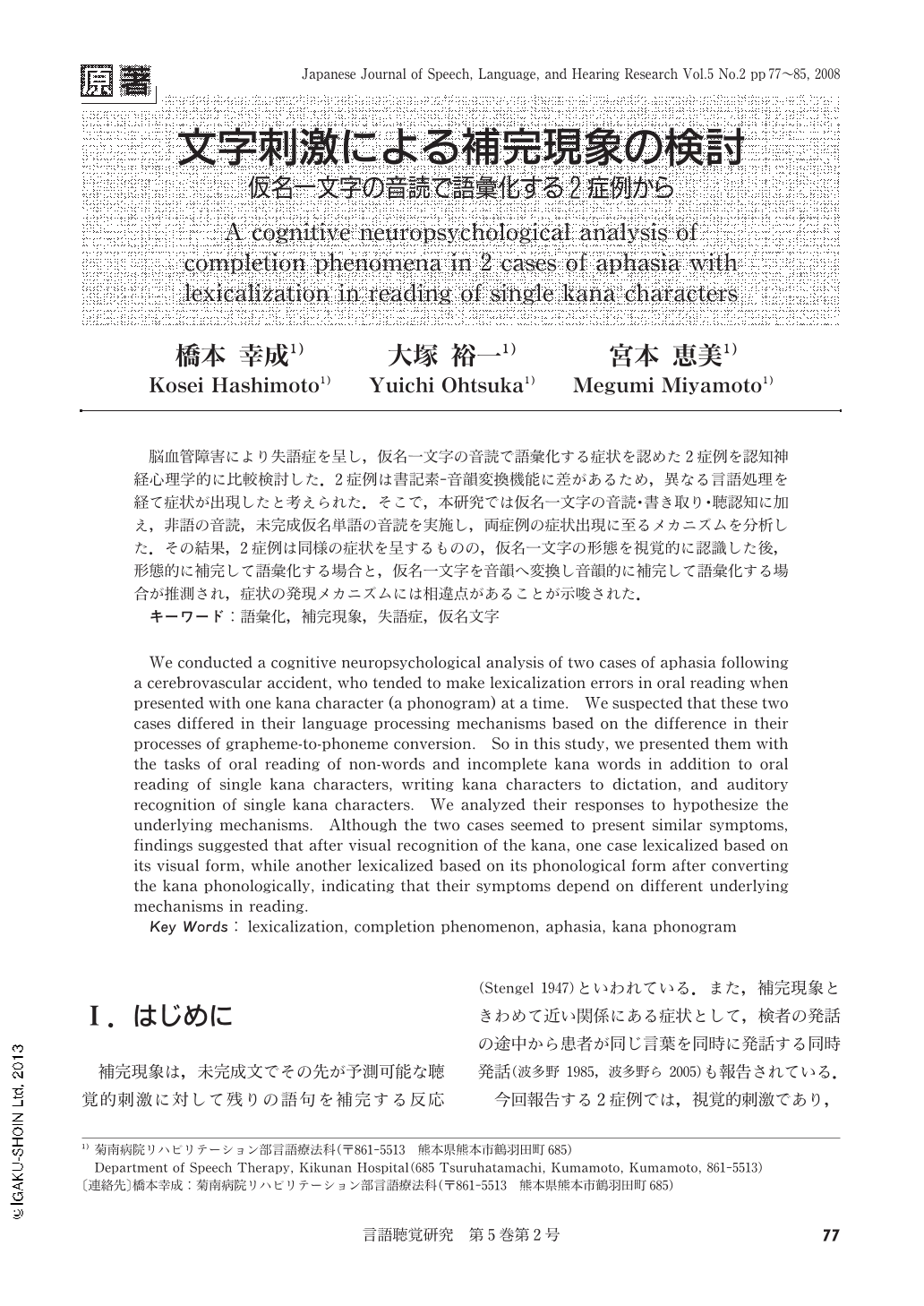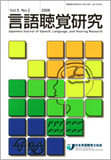Japanese
English
- 有料閲覧
- Abstract 文献概要
- 1ページ目 Look Inside
- 参考文献 Reference
脳血管障害により失語症を呈し,仮名一文字の音読で語彙化する症状を認めた2症例を認知神経心理学的に比較検討した.2症例は書記素-音韻変換機能に差があるため,異なる言語処理を経て症状が出現したと考えられた.そこで,本研究では仮名一文字の音読・書き取り・聴認知に加え,非語の音読,未完成仮名単語の音読を実施し,両症例の症状出現に至るメカニズムを分析した.その結果,2症例は同様の症状を呈するものの,仮名一文字の形態を視覚的に認識した後,形態的に補完して語彙化する場合と,仮名一文字を音韻へ変換し音韻的に補完して語彙化する場合が推測され,症状の発現メカニズムには相違点があることが示唆された.
We conducted a cognitive neuropsychological analysis of two cases of aphasia following a cerebrovascular accident, who tended to make lexicalization errors in oral reading when presented with one kana character (a phonogram) at a time. We suspected that these two cases differed in their language processing mechanisms based on the difference in their processes of grapheme-to-phoneme conversion. So in this study, we presented them with the tasks of oral reading of non-words and incomplete kana words in addition to oral reading of single kana characters, writing kana characters to dictation, and auditory recognition of single kana characters. We analyzed their responses to hypothesize the underlying mechanisms. Although the two cases seemed to present similar symptoms, findings suggested that after visual recognition of the kana, one case lexicalized based on its visual form, while another lexicalized based on its phonological form after converting the kana phonologically, indicating that their symptoms depend on different underlying mechanisms in reading.

Copyright © 2008, Japanese Association of Speech-Language-Hearing Therapists. All rights reserved.


